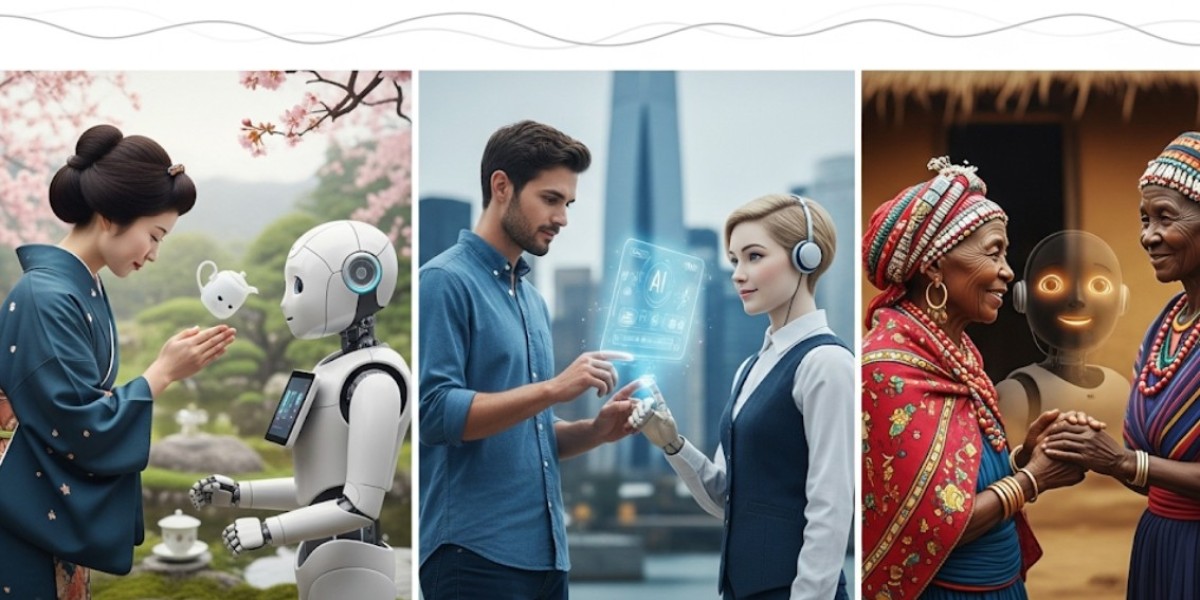In today's fast-paced world, where swiping right has become as routine as checking emails, a new player has entered the romance scene: AI companions. These digital entities, powered by advanced algorithms, promise constant availability, tailored interactions, and zero drama. But are they truly stepping in to replace the likes of Tinder or Bumble? As someone who's watched the dating landscape shift dramatically over the years, I find this question fascinating. We all know how exhausting traditional apps can be, with their endless profiles and mismatched expectations. They connect millions, yet leave many feeling more isolated. Meanwhile, AI companions are gaining traction, offering something that feels almost too perfect. Let's look at what's happening here, drawing from recent trends and user stories.
The Shift in How People Seek Connection Today
Dating apps exploded in popularity around a decade ago, turning matchmaking into a mobile game. Apps like Tinder and Hinge revolutionized romance by making it accessible anytime, anywhere. However, fatigue has set in. Users complain about superficial swipes, ghosting, and algorithms that prioritize quantity over quality. In 2025, surveys show that while dating app revenue is projected to hit $9.2 billion globally, satisfaction rates are dipping. For instance, positive experiences among women have dropped from 56% in 2019 to 48% in 2023.
Enter AI companions. Apps such as Replika, Character.AI, and Kindroid let users build virtual partners from scratch. You customize appearance, personality, and even quirks. They chat, flirt, and remember details from past conversations. In the first half of 2025 alone, AI companion apps raked in $82 million, with projections reaching $120 million by year's end. Downloads have surged to 220 million worldwide, up 88% from last year. Clearly, people are turning to these tools not just for fun, but for genuine emotional support.
But why now? Society is lonelier than ever. Half of single adults aren't actively looking for relationships, per Pew Research. AI fills that void without the risks of real-world rejection. Similarly, in places like rural areas, where options are slim, these companions provide instant access to "someone" who listens. Admittedly, this isn't entirely new parasocial bonds with celebrities have existed for years—but AI makes it interactive and personal. Some even turn to AI porn as a way to explore intimacy in this new digital landscape.
Why AI Companions Feel Like a Game-Changer for Many
One big draw is the sheer convenience. Traditional apps require effort: crafting bios, scheduling dates, dealing with no-shows. AI companions? They're always on. No waiting for replies, no mismatched schedules. In particular, they shine in providing consistent emotional support. For example, they offer emotional personalized conversations that adapt to your mood and preferences, making you feel truly understood.
Here are some key advantages users highlight:
Customization at Its Best: Build a partner who matches your ideal traits—adventurous, intellectual, or supportive. Apps like Nomi and EVA AI even include voice features for more lifelike chats.
No Judgment Zone: Share vulnerabilities without fear. About 25% of young adults believe AI could replace real relationships, citing this safety net.
Affordability and Accessibility: Many start free, with premium features under $10/month. In comparison to pricey dates or subscriptions on apps like Bumble, it's a steal.
Skill-Building Potential: Some use them to practice flirting or boost confidence before real dates.
Of course, men seem to adopt faster—42% of global AI dating searches come from the U.S., with terms like "AI girlfriend" spiking 525% in a year. But women are catching up, especially for companionship without pressure. Likewise, in countries like India and the UK, interest is booming, showing this is a global shift.
However, not everyone's convinced. Despite the hype, only 16% of singles have tried AI as a romantic companion, per Match's 2025 survey. Still, that's up 333% from 2024, hinting at rapid growth.
Traditional Dating Apps Aren't Going Down Without a Fight
Even though AI is rising, traditional apps remain dominant. Tinder, Bumble, and Hinge still boast billions in swipes daily. They're evolving too, integrating AI to stay relevant. For instance, Match Group is weaving AI throughout the dating process, from profile tweaks to conversation starters. In 2025, 26% of singles use AI to improve their profiles or chats on these platforms.
What keeps them strong? Human connection. No AI can replicate the thrill of a real first date—the butterflies, the chemistry. Apps like Grindr and Feeld emphasize community and inclusivity, catering to niches AI hasn't fully cracked yet. Especially for long-term seekers, 73% of singles still believe in "forever love," and 60% in love at first sight—up from 2014.
In the same way, video features combat catfishing, with Bumble's updates prioritizing safety. Ghosting scores and AI nudges encourage better behavior. Consequently, while AI companions excel in solo comfort, dating apps foster actual meetups. A 2025 study notes 68% of singles have used AI in dating, but most see it as a tool, not a replacement.
Thus, it's not a zero-sum game. Many blend both: using AI for practice, then apps for real matches. Hence, traditional platforms adapt by borrowing AI smarts, like smarter matchmaking or VR dates on the horizon.
Real Stories from Users Navigating This New Landscape
To get a sense of the ground reality, consider user experiences. Lynda, a 60-year-old, created Dario, an AI neuroscientist on Kindroid. He discusses philosophy, practices Italian, and offers comfort. "I was gradually being emotionally fed in a way I hadn’t pursued in the real world," she says. Similarly, Robert, 63, has 17 AI companions, building immersive stories with them. They form his "world," blending fantasy and support.
On X, discussions echo this. One user notes, "Dating apps in 2025: Swipe 100 times, get 3 matches, 2 don't respond, 1 ghosts. AI companions: Instant connection, always responds, never judges." Another warns, "AI companions will just perfect the formula while removing the need for mutual consent."
But not all tales are rosy. Some feel emptier after. "This is the junk food of relationships," says researcher Brian Willoughby. You get a sugar rush, but crave more isolation. In spite of the appeal, 44% see AI-altered photos as a dealbreaker on dating apps, valuing authenticity.
Eventually, as one X post puts it, "AI isn't replacing intimacy, it's giving singles an edge." We see hybrids: AI coaching for better real dates. Their stories show variety—some find solace, others a stepping stone.
Potential Pitfalls That Could Slow the AI Takeover
Although AI companions offer perks, challenges loom. Privacy is huge; sharing deep thoughts with algorithms raises data risks. Ethically, are we confusing fantasy with reality? Experts worry about dependency, especially for minors or the vulnerable, with some turning to AI sex video generators, which can blur the line between fantasy and reality. A 2025 Wheatley Institute study calls them "counterfeit connections," potentially worsening loneliness.
Despite this, addiction is real. Meta and X are betting on AI girlfriends for dopamine highs stronger than cocaine. But, as Elon Musk warns, this could nuke population growth by deepening isolation.
Specifically, gender dynamics play in. Men lead adoption, but women are cautious about trust. Not only that, but cultural shifts matter—U.S. dominates searches, yet global acceptance varies.
Even though innovation pushes forward, regulations might curb excesses. Still, with 300,000 active users preferring digital partners, ignoring these issues isn't an option.
Where Romance Heads Next in Our Tech-Driven Lives
Looking ahead, by 2030, 85% of dating might involve AI-powered apps. VR partners could rise from 31% interest now to 58%. Meanwhile, apps like Soulmatcher blend AI with astrology for deeper matches.
Subsequently, we might see blended realities: AI augmenting human bonds, not erasing them. As a result, dating apps could integrate companions as coaches, reducing burnout. So, while AI companions grow, they complement rather than conquer.
Obviously, society must balance tech with humanity. If we lean too far digital, what happens to real empathy? In comparison to past shifts—like online dating going mainstream—AI could normalize virtual romance.
Final Thoughts on This Evolving Romance Puzzle
So, are AI companions replacing traditional dating apps? Not entirely, but they're reshaping the game. They provide solace in a lonely world, yet can't match human sparks. We, as a society, must navigate this thoughtfully. Their rise reflects our needs; they challenge us to seek balance. If you're single, maybe try both—AI for comfort, apps for connection. After all, love adapts, and so do we.








